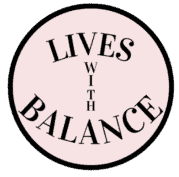Embarking on a journey to understand and honour our menstrual cycle is empowering and essential for our overall well-being. Yet, amid the plethora of information available, navigating the do’s and don’ts of menstruation can feel overwhelming. In this enlightening blog post, we delve into period mistakes to avoid, shedding light on practices that may unknowingly disrupt the delicate balance of our bodies during this sacred time. Let’s embark on a journey of menstrual wisdom and learn how to honour our bodies with grace and understanding.
14 Products Women Shouldn’t Use Daily
Absolutely! Being mindful of these period mistakes to avoid can indeed make that time of the month much easier to navigate. We can minimize discomfort and reduce the risk of future health issues by understanding how our bodies respond during menstruation and taking proactive steps to support our health and well-being.
Ayurvedic approach to heal PCOS
Period mistakes to avoid according to Ayurveda
Eating cold foods
- Ayurveda advocates for warm foods during menstruation to facilitate smooth blood flow- a practice dating back to ancient times when women were offered sesame seeds, jaggery sweets, and dried coconut.
- The worst foods to eat during your period are cold foods (ice cream, cold drinks, and icy water). They should be entirely avoided during periods to prevent exacerbating cramps and bloating.
- Similarly, salads, un-soaked nuts, black coffee, and green tea are best avoided as they can further dry out the body.
- It’s crucial to avoid non-vegetarian, deep-fried, heavy, and junk foods, given the naturally reduced digestion during menstruation.
- Recent studies suggest that extreme period symptoms could be linked to magnesium deficiency, highlighting the importance of incorporating magnesium-rich greens into one’s diet.
- Additionally, these greens serve as excellent sources of iron.
- Optimal drinks during menstruation include ginger tea and turmeric milk.
- In summary, favour warm, freshly cooked home meals while avoiding cold and drying fruits to support menstrual health and well-being.
How exactly is moon related to women
Taking head bath
- According to Ayurveda, head baths during menstruation can exacerbate period-related issues.
- This is because pouring water over the head reduces the temperature of the upper body, disrupting the natural flow of heat energy from downward to upward, which is counterproductive during menstruation.
- This disturbance in energy flow can even impact the subsequent ovulation cycle.
- While Ayurveda generally advises against bathing during periods, recognizing its practicality for many women, it recommends bathing in lukewarm water, preferably with added Epsom salt, to mitigate potential adverse effects.
- Avoid head baths during periods to maintain optimal balance and support menstrual health.
Overexerting yourself
- Many influencers advocate for intense workouts even during menstruation, but is this advisable? No, it’s best to opt for light exercises like pranayama, leisurely walks, or post-dinner strolls during your period to alleviate symptoms such as pain, cramps, bloating, mood swings, and fatigue.
- High-intensity or prolonged workouts can exacerbate these symptoms.
- According to Ayurveda, yoga poses involving raised legs should be avoided during menstruation.
- Adequate sleep is also crucial, as the body requires extra rest.
- Ignoring the need for rest and overexertion during periods can lead to long-term issues like PCOD.
- It’s essential to prioritize gentle activities and sufficient rest to support your body’s natural rhythms and menstrual health.
Everything you need to know about ovulation
Having intercourse
- Engaging in sexual intercourse during menstruation is strongly discouraged in Ayurveda as it can disrupt the delicate balance of a woman’s body, leading to bloating and painful periods.
- Moreover, studies suggest that it increases the risk of sexually transmitted infections (STIs) like hepatitis.
- As pathogens can easily travel to the bladder during intercourse, this heightens the risk of conditions such as endometriosis.
- Ayurveda teaches that menstruation is when a woman’s body naturally cleanses itself. It is in a weakened state due to blood loss.
- Therefore, it is advisable to abstain from sex during periods to honour the body’s natural rhythm and support overall well-being.
Using synthetic pads and tampons
- Did you know that the white colour of sanitary napkins comes from bleach? Recent studies have revealed that sanitary pads emit volatile organic compounds capable of disrupting hormonal balance.
- Additionally, the presence of dioxin in pads poses a grave health risk, as it is a known carcinogen, promoting the development of cancerous cells in the body.
- Shockingly, these harmful substances can be absorbed into the body 18-20 times more effectively through the vaginal opening compared to oral absorption.
- Synthetic tampons, inserted directly into the vagina, are even more concerning than pads.
- Change tampons or pads every 4-6 hours to prevent health complications.
- Opting for organic, natural, and biodegradable sanitary napkins or cloth pads can reduce exposure to these harmful chemicals, prioritizing health and environmental sustainability.
As we conclude our exploration of period mistakes to avoid, it’s crucial to remember that menstruation is not just a bodily function but a profound journey of self-discovery and empowerment. By avoiding common pitfalls and embracing practices that nourish our bodies and spirits, we can honour the natural rhythms of our menstrual cycle and cultivate a deeper connection with ourselves. Let’s continue to educate and uplift one another on this journey, empowering women everywhere to embrace their periods with grace, confidence, and reverence. Let’s rewrite the narrative surrounding menstruation and celebrate the innate beauty and wisdom of our bodies. Here’s to embracing our cycles, honouring our bodies, and reclaiming the power of our periods!


The breadth of knowledge compiled on this website is astounding. Every article is a well-crafted masterpiece brimming with insights. I’m grateful to have discovered such a rich educational resource. You’ve gained a lifelong fan!
Thank you so much….